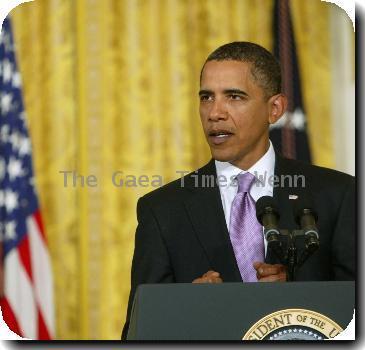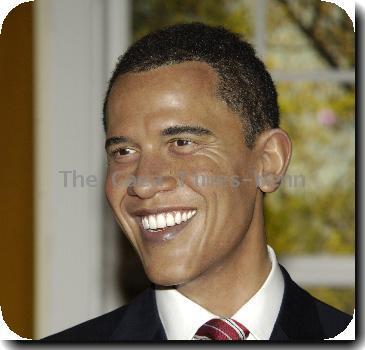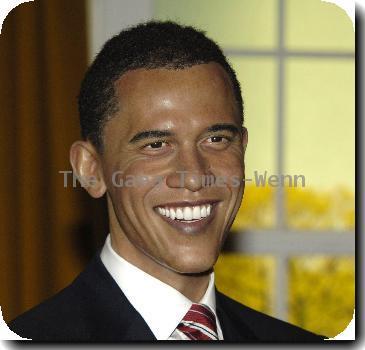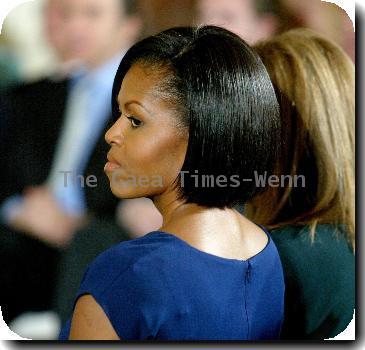Top Pentagon leaders say next step in warship sinking will be up to South Korea
By Matthew Lee, APThursday, May 20, 2010
Pentagon won’t say ship sinking is an act of war
WASHINGTON — U.S. officials refused on Thursday to call North Korea’s torpedoing of a South Korean warship an act of war or state-sponsored terror, warning that an overreaction could cause the Korean peninsula to “explode.”
The tempered response was an indication of how few options President Barack Obama has, and how volatile the situation is, after an international team of investigators said a North Korean sub torpedoed and sank a South Korean corvette March 26.
While the U.S. has vowed to defend South Korea — and has 28,500 troops there to prove it — it doesn’t want to provoke new hostilities or spark chaos in the region.
“There’s no interest in seeing the Korean peninsula explode,” said P.J. Crowley, State Department spokesman.
Republicans suggested the Obama administration’s response was too mild.
“We cannot continue to dismiss actions by North Korea as ‘more of the same,’” said Sen. James Inhofe, a conservative Republican from Oklahoma.
U.S. officials said they would explore diplomatic steps through the U.N. or increase Washington’s unilateral sanctions against North Korea’s Soviet-style state.
Asked repeatedly by reporters about the U.S. military reaction, Defense Secretary Robert Gates would only say that he “accepts” South Korea’s assertion that North Korea was to blame for the blast that ripped the 1,200-ton Cheonan in two.
Fifty-eight sailors were rescued, but 46 died in what is being called South Korea’s worst military disaster since a truce ended the three-year Korean War in 1953.
“The key thing to remember here is that this was an attack on a South Korean ship, and the South Koreans need to be in the lead in terms of proposing ways forward,” Gates told reporters.
Adm. Mike Mullen, chairman of the Joint Chiefs, also declined to discuss a U.S. response other than to confirm that American troops stationed on the Korean peninsula were not on a heightened state of alert.
South Korean President Lee Myung-bak has vowed “stern action” in response to the attack. North Korea denies it sank the South Korean warship, and warned that fresh sanctions or other retaliation would trigger “all-out war.”
Crowley was noncommittal when asked what steps the U.S. was considering. He said the administration was consulting with South Korea on how it wants to respond, while not ruling out unilateral American action against North Korea.
“We are an ally and friend of South Korea, and we will support them whatever their choice is,” he said. “We have other options available to us as well, you know, on this, and we’ll be considering our options.”
Crowley mentioned the possibility of financial measures against North Korea, while adding that further provocations — including military action that would violate the 1953 Armistice — should be avoided.
Crowley did not rule out putting North Korea back on a U.S. list of states that sponsor terrorism, but he strongly suggested that the sinking of the South Korean ship would not be sufficient cause to do so. The administration of former President George W. Bush removed North Korea from the list in October 2008.
“There is a clear definition of terrorism,” Crowley said. “Terrorism normally involves, you know, acts of violence against innocent civilians. You know, at one level this was a torpedo fired by one military vessel at another military vessel.”
At another point Crowley suggested this remained an open question. He said the sinking of the ship was clearly an act of aggression. “It may or may not be considered an act of terrorism,” he said.
Like the administration, most lawmakers said they were troubled by the attack but stopped short of saber rattling.
Sen. John Kerry, D-Mass., chairman of the Senate Foreign Relations Committee, called on the international community to “speak with one voice.”
Republicans sounded a sterner note, suggesting the U.S. push quickly for a tough international response.
Sen. John McCain of Arizona, the top Republican on the Senate Armed Services Committee, said the U.S. response “must be serious and immediate” and urged China to “work more responsibly than it has thus far for the security and stability of East Asia.”
Rep. Edward Royce of California, the top Republican on the House Foreign Affairs subcommittee on terrorism, said the U.S. and South Korea should present the evidence on the Cheonan sinking to the U.N. Security Council.
“We cannot allow North Korea to take the lives of 46 South Korean sailors with a torpedo attack and pretend it didn’t occur,” Royce said in an interview Wednesday.
South Korea’s accusation was expected to dominate Secretary of State Hillary Rodham Clinton’s trip to the region, her fifth to Asia as America’s top diplomat.
Just hours before Clinton departed, the White House called the ship sinking an “act of aggression” that is “one more instance of North Korea’s unacceptable behavior and defiance of international law.”
The centerpiece of Clinton’s trip, which includes scheduled stops in Japan, China and South Korea, was supposed to be a new round of U.S.-China strategic and economic talks.
But now Clinton’s key task may be trying to persuade the Chinese to support U.N. Security Council action. The Chinese have the most leverage over reclusive regime, and Beijing’s support for any international response to Pyongyang will be critical to its success.
In Beijing on Thursday, Chinese officials appealed for calm. Vice Foreign Minister Cui Tiankai called the sinking “unfortunate.” But he stopped short of backing Seoul in the growing dispute, instead reiterating China’s long-standing views on the need to maintain peace on the Korean peninsula.
“The parties involved should stay calm and exercise restraint … to avoid escalation of the situation,” Foreign Ministry spokesman Ma Zhaoxu told a separate briefing later Thursday. Ma said China was still assessing the results of South Korea’s investigation.
AP national security writers Robert Burns and Anne Gearan contributed to this report.
Tags: Accidents, Asia, Barack Obama, Beijing, China, East Asia, Greater China, International Incidents, John Kerry, Lee Myung-bak, North America, North Korea, South Korea, Terrorism, Transportation, United States, Washington




